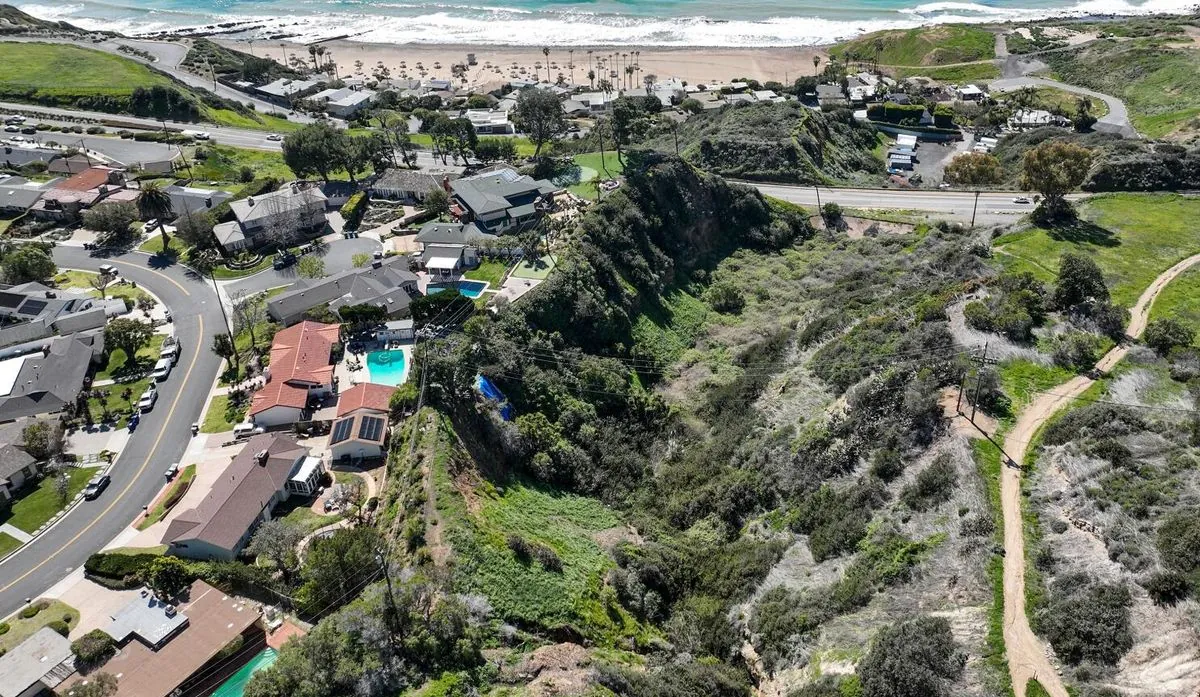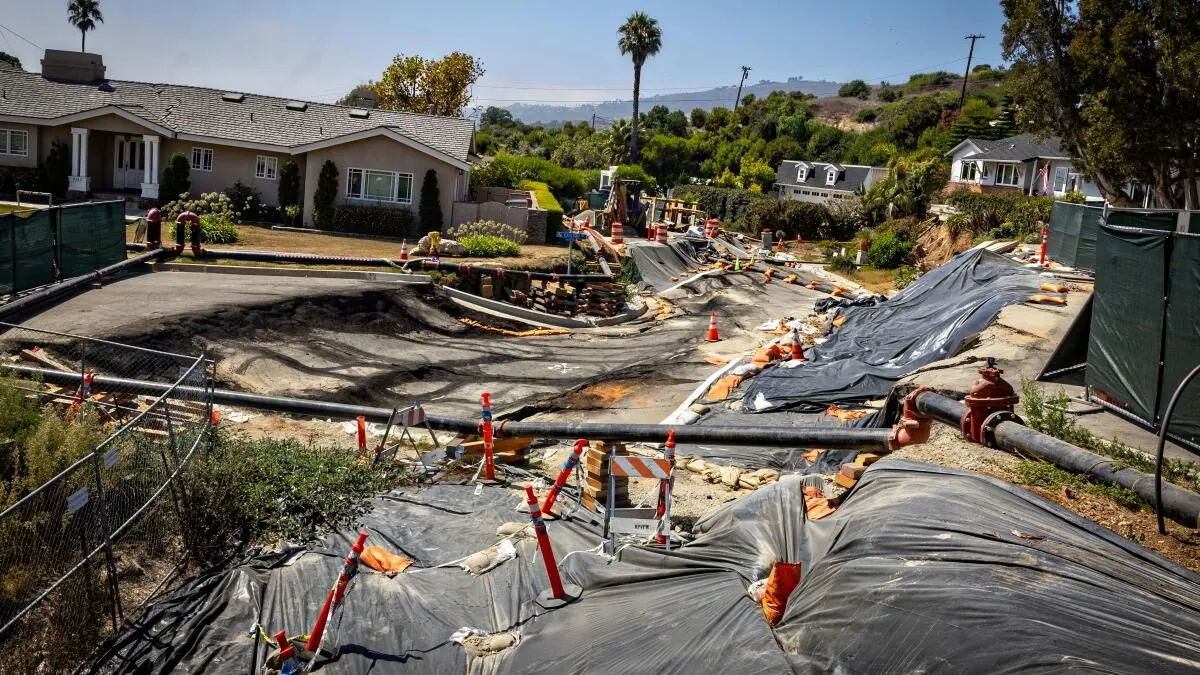Rancho Palos Verdes Homes Crumble as Landslides Accelerate
Residents of Rancho Palos Verdes face dire circumstances as accelerating landslides threaten multimillion-dollar homes. Governor Newsom declares state of emergency, but affected families seek more substantial aid.

In the affluent coastal community of Rancho Palos Verdes, California, residents are grappling with a crisis as accelerating landslides threaten their homes and livelihoods. This picturesque area, known for its stunning views and high-value properties, is now facing a natural disaster that has forced some families to live off the grid and others to abandon their homes entirely.
Nick Mardesic, a local resident, exemplifies the struggle many are facing. His family now relies on flashlights for illumination and must travel to his parents' home for basic necessities like hot meals and showers. Mardesic's property has experienced significant damage, with sections of his front yard sinking approximately 3.5 feet (1 meter) and deep fissures appearing throughout the structure.
"It's something you see out of a movie. It's almost unbelievable ... just watching your house sink away."
The landslides in Rancho Palos Verdes are part of a larger geological phenomenon known as the Portuguese Bend landslide, one of the largest continuously moving landslides in North America. While this area has a history of land movement dating back nearly 70 years, recent heavy rainfall has dramatically accelerated the process. Land that once moved several inches per year is now shifting 9 to 12 inches (22.8 to 30.48 centimeters) weekly.

This acceleration has led to severe consequences for the community. Entire homes have collapsed or been torn apart, and critical infrastructure has been compromised. The historic Wayfarers Chapel, designed by Lloyd Wright, son of the renowned architect Frank Lloyd Wright, had to be dismantled earlier this year due to the unstable ground.
In response to the crisis, California Governor Gavin Newsom has declared a state of emergency. However, many residents, including long-time community member Jill Carlton, express disappointment that more substantial aid, particularly for individuals, has not been forthcoming.
The situation in Rancho Palos Verdes highlights the increasing vulnerability of California's coastal communities to climate-related disasters. As extreme weather events become more frequent and intense due to climate change, the state faces growing challenges in protecting its infrastructure and residents.
The crisis also underscores the complex interplay between natural processes and human activity. Some residents have filed a lawsuit against the city and its water provider, alleging that leaks from water and sewer pipes have contributed to the land movement. However, experts like emeritus professor Jeffrey R. Knott of California State University, Fullerton, note that determining the primary cause can be extremely difficult.
As the community looks to the future, questions of resilience and adaptation loom large. Mayor John Cruikshank emphasizes the need for more robust systems in the face of changing climate conditions. Meanwhile, residents like Mardesic face difficult decisions about whether to stay and continue fighting to save their homes or to seek relocation assistance in Southern California's expensive housing market.
The Rancho Palos Verdes landslide crisis serves as a stark reminder of the ongoing challenges faced by many California communities as they confront the realities of climate change and geological instability. As the situation continues to evolve, it will likely prompt broader discussions about land use, disaster preparedness, and the future of coastal development in vulnerable areas.


































